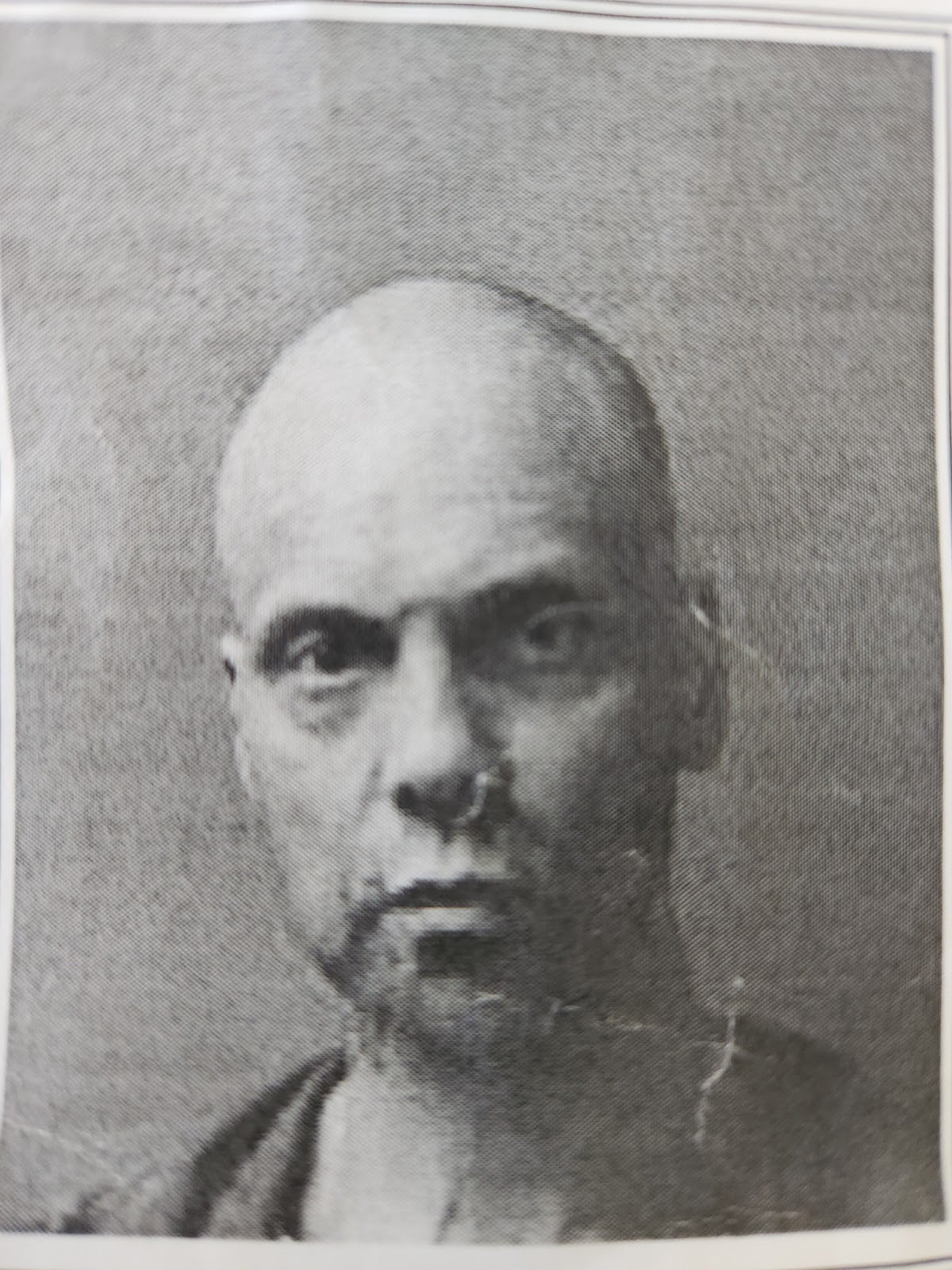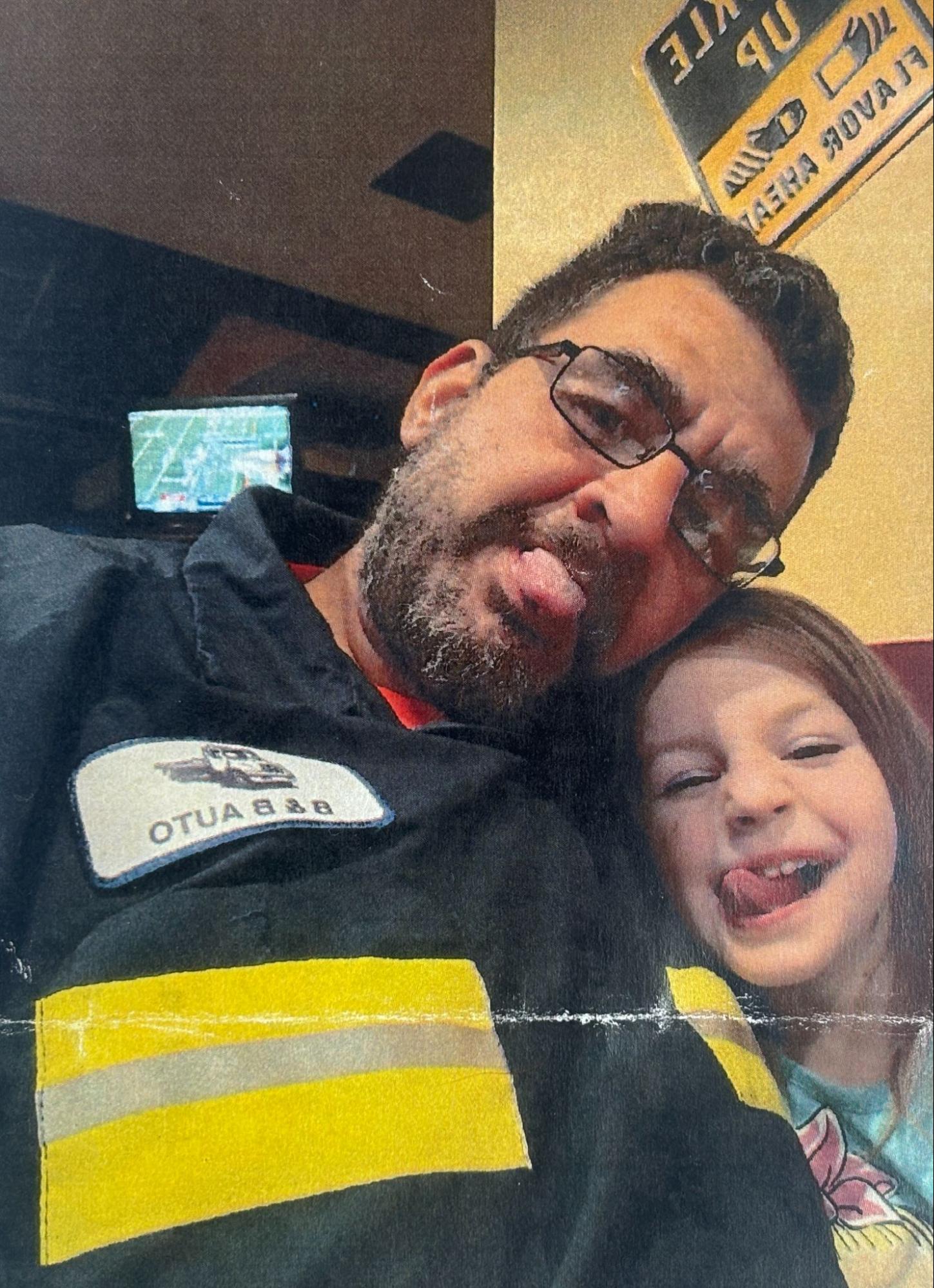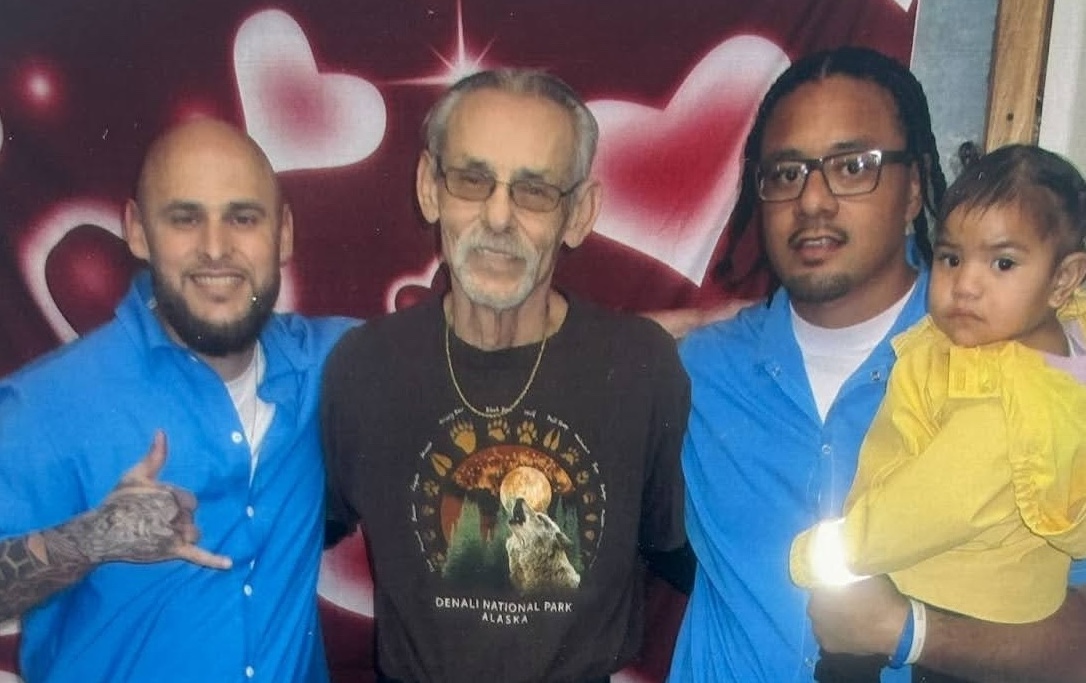Rising from the structure was enough dust and brick to rename Magnolia Street, the narrow strip of sidewalk the house sat on. But it was home, according to Daddy, and “then some,” an expression that had meant very little to me until his sudden passing. That morning had fallen like a hapless cloud, offering no pity for the sorrow that had edged Mama’s voice. “Wake up, Child,” she urged, pressing lightly against my bedroom door. “Your father passed away last night,” she managed behind a weary pause. “Doctor claimed it was a stroke,” her last word descending like pebbles in deep and muted water. It must have been her mahogany frame tilted awkwardly against the door that signaled all was not well, the mention of Daddy without his presence adding to my dilemma. Lowering her hazel eyes, she continued to the room of my sisters, Helena and Phyllis.
I pictured their sleep-laden faces searching for an explanation but finding discarded dreams instead. For it wouldn’t be so much the news Mama delivered as it would be the implications etched on her worn and tired face. You knew these things at nine years old, like knowing how many raindrops it takes to fill a bottle cap. Such things as only curiosity and idle minutes were best at interpreting. Exiting the bathroom, I brushed a hand gently beneath Phyllis’s chin, whose brown pupils held me like two upturned pennies.
“Ready?” Helena patiently announced. Phyllis raised a chubby knee, never doubting the outstretched arms awaiting her. The trust between Phyllis and her sister was a palpable thing undeterred by age or time. Silence, like a lone spectator, hovered in my room. In its embrace, I paused for the dry belch of the hall radiator and Mama’s tread in the kitchen, but both had somehow slipped by and now seemed irretrievable. Mama’s coffee, potent and beckoning, filled the hall. Marking the last of my sisters’ footsteps down the back stairs.
Slowly and reluctantly, I began towards Daddy’s room. His giant four-poster stood there as if Daddy’s whereabouts lay hidden in the quiet spirals of its cranberry spread. The scent of freshener, sandalwood, and musk lingered, leaving his recliner and several portraits in stunned disarray. With weighted steps, I turned and descended the back stairs, leaping from the last awaiting ledge onto the kitchen floor.
The memory of that moment hung like a distant dream, infinitely beyond reach.
Mama, who stood over a pot of oatmeal, appeared too occupied to dispense her usual warning for my foolishness. In contrast, her sad eyes seemed lost in the swirl of cinnamon holding her gaze within the pot.
“Aunt Soapy will be over shortly,” Mama finally commented, pulling her gaze from the last red circle. I peered through the breakfast room at the rest of the house before quizzing her.
“Does that mean no school?” Fleetingly, her distant eyes swept the wall beyond me.
“With all the visiting I’m planning with your daddy’s relatives, the school must wait.”
Instinctively, I returned my gaze to our dining room, which had two years ago welcomed Phyllis into the world. Six months later, Mama and Daddy had pounded its linoleum surface, doing what they had called the Philly Dog. The memory of that moment hung like a distant dream, infinitely beyond reach. Our living room, from my view of it, seemed to hide its sorrow. Peeking at its entrance sat Daddy’s baby grand as if trapped between another world and the partial sunlight streaming through the window beyond it. Hushed also was the squeal of yielding floorboards, the cry of stubborn hinges, and the belching of arrogant pipes to speak what my family could not.
“I want you children to behave while I’m gone.” Mama’s voice cut haltingly through my thoughts.
“Helena can help with the dishes,” she continued. Helena raised a dutiful head from the last of Mama’s oatmeal in front of her. In the highchair beside her, Phyllis raised both hands and screamed in her best adolescent rendition, “Sugar! Sugar!” to which Mama responded by circling the table and planting two soft kisses on her oatmeal-smeared cheeks. Mama started up the back stairs as Helena, and I cleared the table. When she did, the front doorbell rang, unleashing me in all my eager foolishness to answer it. Upon releasing its lock, a stout and more extensive version of Mama stood at its entrance. Aunt Soapy and Mama were almost the exact images of one another, the difference being only in Soapy’s girth and piercing brown eyes.
“Where’s your mama, child?” Soapy greeted me, placing a soft hand on my head and then entering the living room.
“Upstairs,” I volunteered, keeping stride behind her shifting flanks.
“Have you had your breakfast yet?”
“Yes, ma’am,” I half uttered, wondering if she knew of Daddy’s whereabouts.
As was her custom, Soapy shouted a giant “Lord have mercy” before placing two resounding kisses on the foreheads of Phyllis and Helena, a ritual I’d been exempt from ever since my seventh birthday. Soapy disappeared momentarily up the front staircase, then returned with Mama, now wearing a Sunday dress completed with a matching handbag.
Ordinarily, I’d notice how smart Mama looked donning such outfits. But it was a weekday, rendering the Sunday dress incomplete without the aroma of fried eggs and Mahalia Jackson pouring from the living room stereo. “You children behave yourselves,” Mama admonished again as she and Aunt Soapy drifted to the front door. The lone echo of Mama’s admonishment followed her into the sunlight while I prayed silently Daddy would return with her.
It was Aunt Soapy’s habit to read her morning scripture, which she’d customarily pursued within her North Philly row home. This morning, she settled for Mama’s highback and the giant King James we kept in the living room. Consequently, I wondered what connections she shared with the Almighty that morning. Particularly after playfully taunting Helena and hearing Soapy inquire about what I was “up to” at that moment. A quick glance at her chestnut eyes revealed they hadn’t moved an inch from the open book before them. The monopoly game Helena and I had begun slowly consumed what was left of the morning. Meanwhile, Phyllis became bored and started sampling with her tongue the tiny greenhouses we discarded beside her lap. That afternoon arrived like the tail end of a lost summer, rendering faces that should have been elsewhere in the hours that endured them. And despite the subtle chatter of gossiping relatives, the digesting of ham sandwiches and coffee, the house still hadn’t uttered one iota.
It was suppertime when Mama finally returned home, the house long empty of the visitors that had filled its awkward silence. The fact that Daddy had not returned with her left me, Phyllis, and Helena, at odds with the lumbering shadows that had accompanied her. Mama and Aunt Soapy had walked no further than the dining room when Mama’s stricken cry pierced the ears of me and my sisters. She staggered momentarily, but Soapy, with a strong and tender arm, guided her firmly to one of the chairs encircling the dining room table. My sisters and I had never heard Mama cry before, and in that moment, the house grew as silent as I had ever recalled or ever shall. I guess it was Mama’s outward grief that prompted what came next because we all encircled her and began to cry, too. Phyllis must’ve been bawling the loudest while sitting in my arms. This, I believe, assuaged Mama’s grief momentarily because she took hold of Phyllis and gently rocked her until her crying subsided. It wasn’t until later that evening my sisters and I realized Daddy would never return home. Whether this was decided by the peaceful walls of the living room or the quiet trailing of crimson carpet along the hallway, we knew it, like all things that came to a short but tangible end. It must’ve been several weeks later when those telltale sounds returned; the obnoxious squeal of floorboards, the rude clanking of pipes, and last but not least, the belching of the upstairs radiator. I mention telltale because despite Mama’s somber preoccupation those days, a smile would periodically light her face and even an occasional taste for strawberry ice cream, which was her favorite.
Nevertheless, I think it did us all good to hear those sounds return, for they spoke of many things that had been hard for us to utter and “then some”







what a beautiful writer you are! I can tell you have written before. You have talent and perspective, am a better person for reading this. Keep writing.